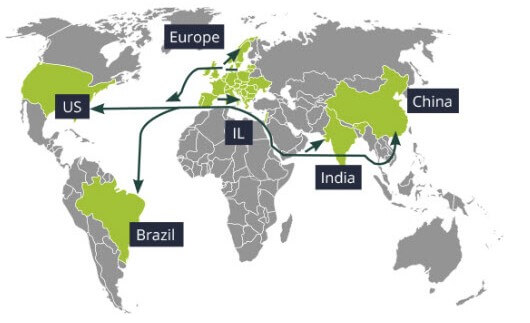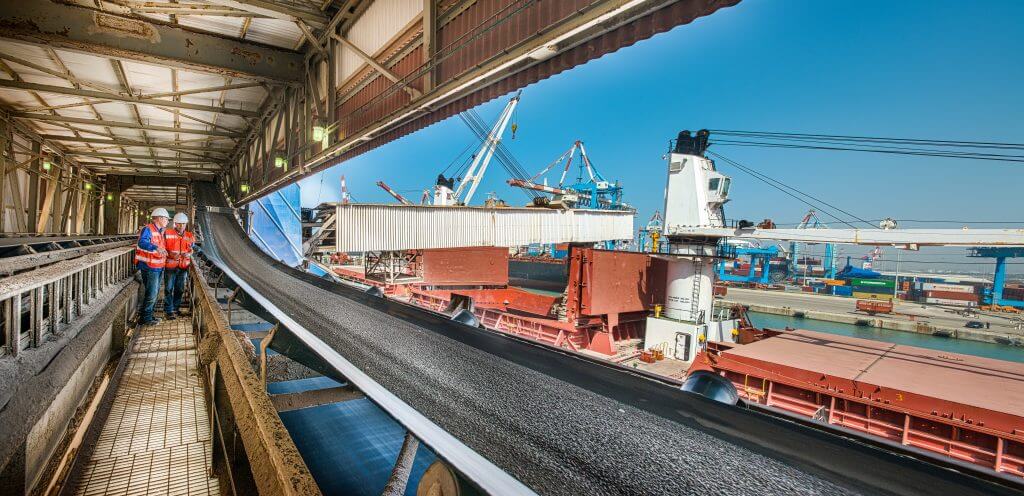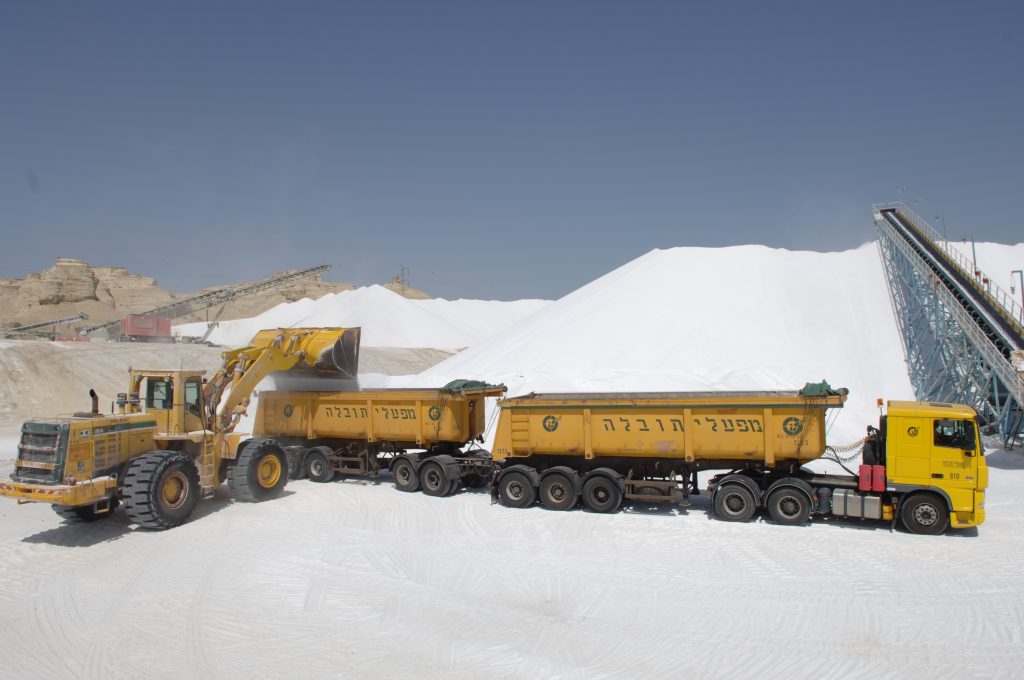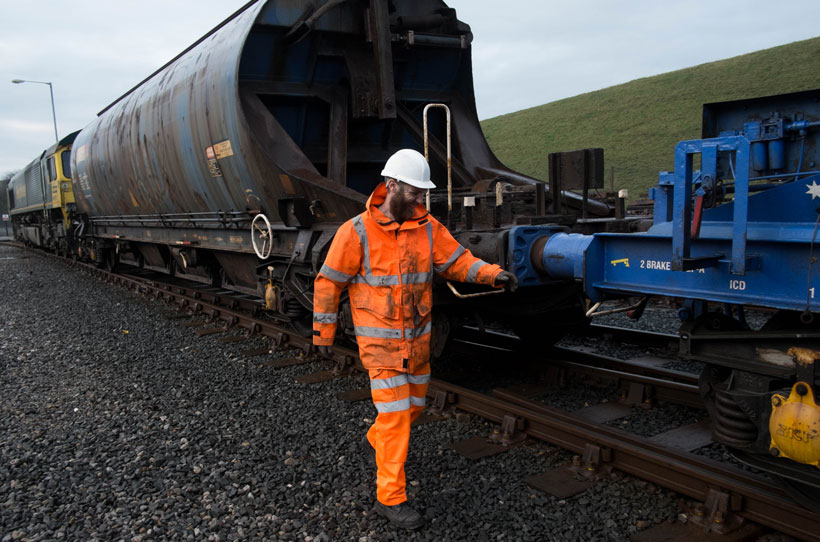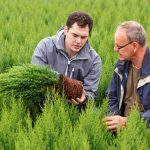ICL Iberia transports ore that it excavates from its Cabanasses mine to a production plant by conveyor belt. The final products of potash and salt are transported from the plant to its customers by trucks and trains to the local market, and by railway to Barcelona port and then to overseas markets. A designated railway line is used for the transport of potash from the mines to the Barcelona port.
ICL Iberia owns and operates its own port facilities, which consist of bulk potash and salt storage facilities, freight car and rail truck conveyor unloading facilities and product storage warehouses.
In 2019 ICL Iberia signed a freight rail transport agreement with FGC (Ferrocarrils Generalitat de Catalunya) which increased the capacity of the rail transport. In 2022 up to seven trains left daily with a total payload capacity of 800 tonnes, spread over about 21 freight cars. Increasing the number of freight convoys to the port, which replaces tens of thousands of vehicles per year on the road, has resulted in a significant decrease in CO₂ emissions and has also contributed to improved road safety.
ICL Iberia’s Suria production site has one rail load out system for rail to port transport systems. The train traction engine and part of the bulk freight car rolling stock is operated by the owner and operator, FGC (Ferrocarrils de la Generalitat de Catalunya).
As part of a plan to increase its production capacity, ICL Iberia is upgrading its logistical infrastructure at the Suria Site and at the Cabanasses mine (an entrance ramp into the mine was opened in 2021), at its factories and at the Company’s berth in the Barcelona port, in such a manner that will permit production, transport and export of about 2.3 million tonnes of potash and salt per year.



